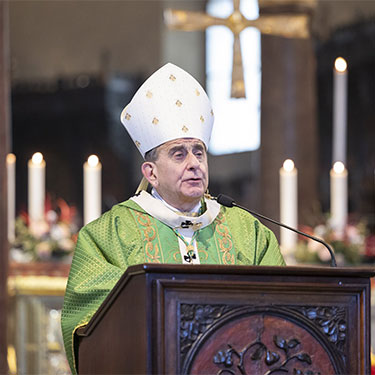
News | Inauguration 2024-2025
"Follow me!" Levi got up and followed him
Eucharistic Celebration - Homily by Mario Delpini, Archbishop of Milan
| Mario Delpini
17 gennaio 2025
Condividi su:
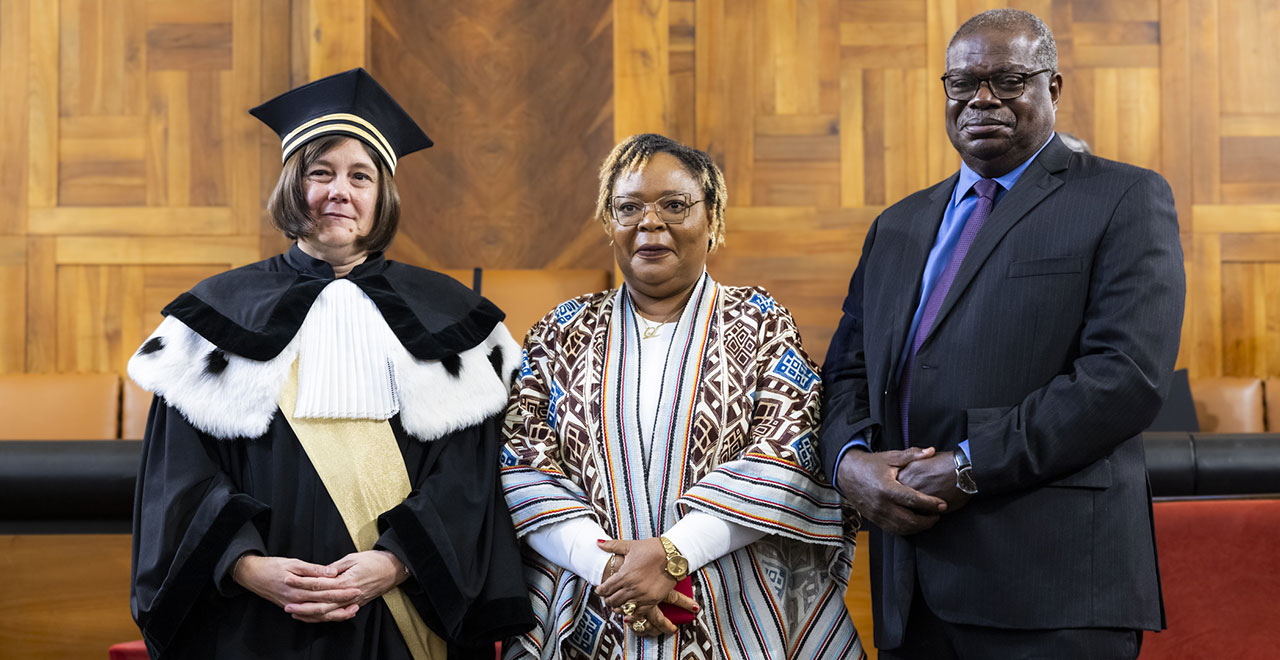
“If I were to summarise the essence of the programmatic lines of my rectorship, I would use the formula that Università Cattolica del Sacro Cuore must be the best university for the world, not simply the best university in the world,” stated Professor Elena Beccalli in her first inaugural address as Rector. The opening ceremony for the 2024-2025 academic year took place in the university’s Aula Magna on Friday, January 17, and was attended by the Archbishop of Milan and President of the Giuseppe Toniolo Institute for Higher Studies Mario Delpini, the Minister for University and Research Anna Maria Bernini, the 2011 Nobel Peace Prize Laureate Leymah Gbowee, and the Ghanaian economist Ernest Aryeetey. Many high-ranking state officials and religious authorities were present, including Cardinal Peter Turkson.
But what does it mean to be the best university for the world? Rector Beccalli identified three ideal lines to pursue: “to serve knowledge with a long and integral perspective to develop new paradigms, to promote dialogue among disciplines to avoid falling into fragmentation, and to educate men and women of value to teach them to recognise the truth. This vision presupposes, for its implementation, the involvement of the entire university family, and assumes a broader significance as it interweaves with a general reflection on the present and future of the university system.”
An article by

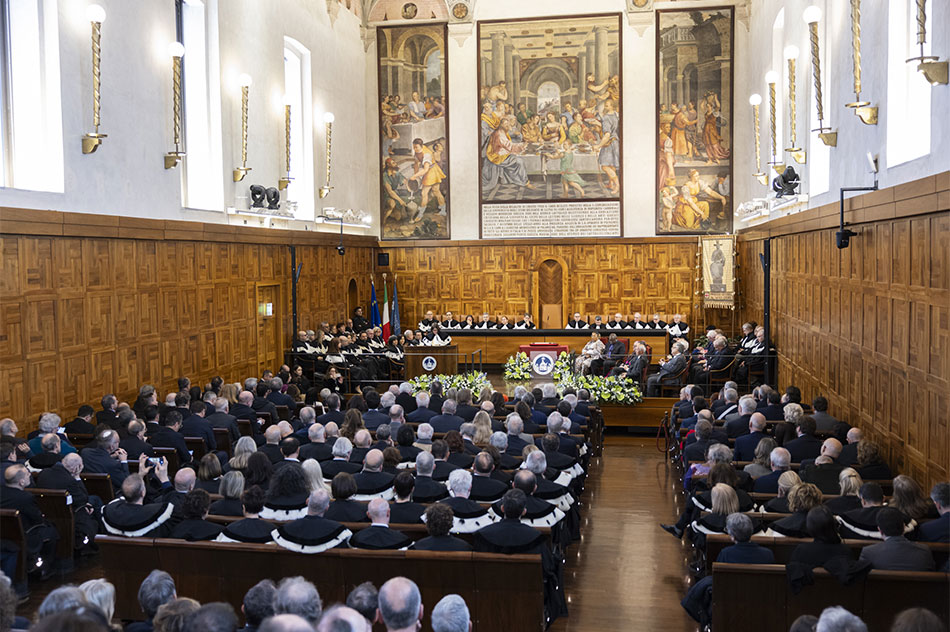
In this context, the President of the Toniolo Institute, Archbishop of Milan Delpini, remarked in his greeting that the inauguration of the Academic Year of Università Cattolica del Sacro Cuore “is also celebrated as a denunciation of banality”. The University contrasts this “because it proposes to understand knowledge as a factor of wisdom”, “because it promotes the study of the past as a memory that prevents us from becoming flattened in the present and ignoring our roots”, “because it positions itself as a university, that is, as a meeting place for knowledge and as a conducive context for the pursuit of truth, that is, not just specialisation in the specifics”, “because it proposes the humanistic dimension of every competence”, “because it provides a context in which things are also signs, objects also serve as messages”, “because it perceives knowledge as a relationship.”
In her greeting, the Minister for University and Research Bernini spoke of the students as “the human capital, the strength, the detonator of our commitment and enthusiasm to make our communication of knowledge increasingly empathetic and inclusive.” Addressing crucial issues for knowledge, she stated that “those who can hold together technology and humanism can win the challenge of artificial intelligence. AI and algorithms make sense if they revolve around the centrality of the person.”
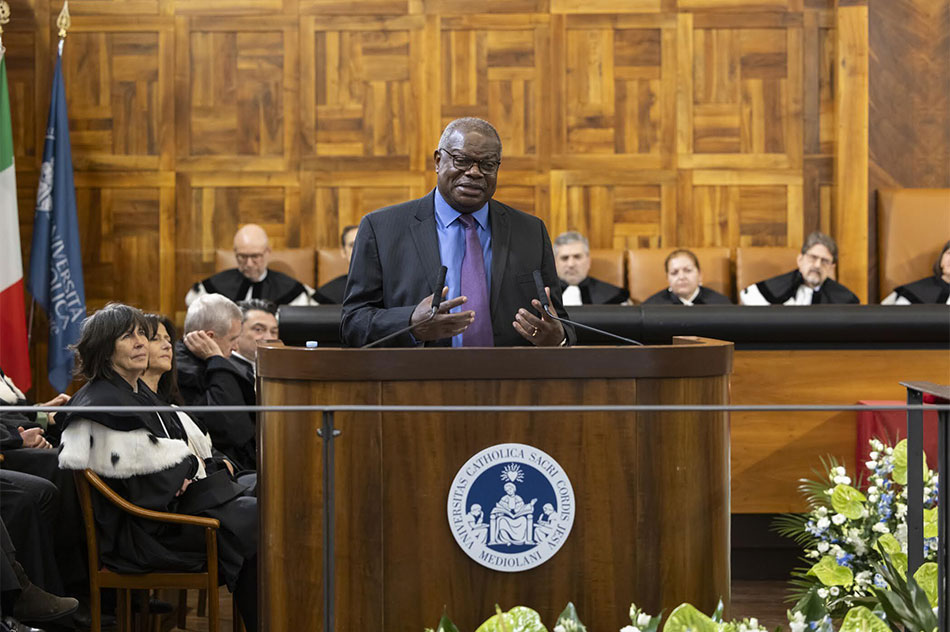
Along these lines, Rector Beccalli highlighted two priority themes concerning students. “The first relates to their role: we are convinced that they are not users to whom we offer a service, as a well-established trend would lead us to do, but rather individuals animated by the hope of living an educational experience that values their multiple intelligences, namely the three languages of head, heart and hands often evoked by Pope Francis. The second theme concerns their future: we believe that universities must prepare future leaders and generations with the awareness that professionalisation is in no way sufficient in itself and, above all, that it is not the only goal to indicate as the horizon of the university path.”
In the second part of her speech, Professor Beccalli addressed “some alarming data concerning educational inequalities” that can be tackled also through digitalisation and artificial intelligence. “What I propose is an educational pact for new technologies and artificial intelligence," she said, asserting that the premise “is that education can benefit from new technologies when these act as mediators, without becoming an end in themselves.”
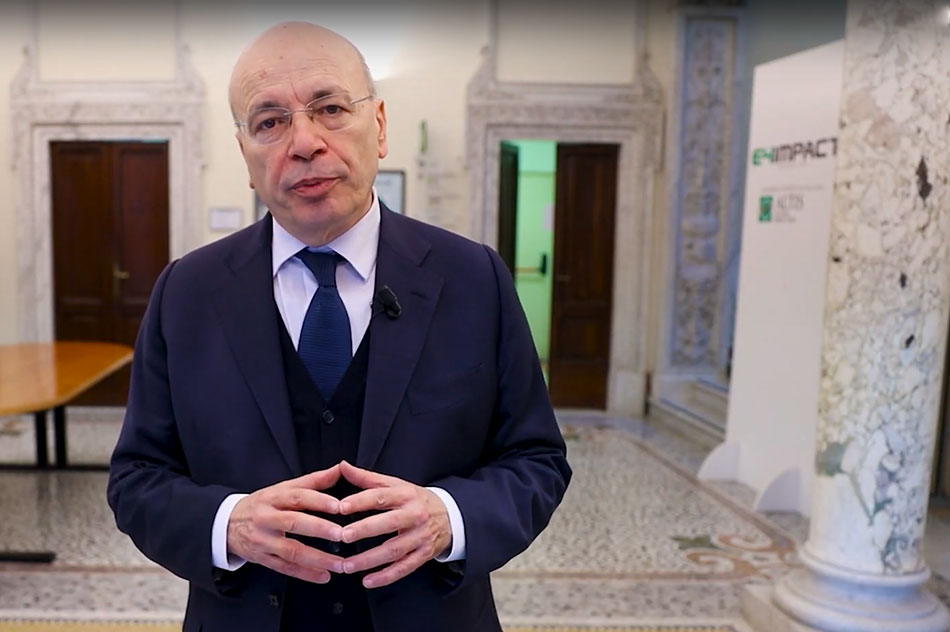
Three open questions to address were outlined. “The first is to understand how artificial intelligence can help refine traditional teaching methods, individualising the pedagogical approach to make it more suitable to the context without, however, distorting the epistemological configuration of academic institutions like ours. The second concerns research: Università Cattolica is the ideal place to foster dialogue between the humanities and social sciences and artificial intelligence. The third issue pertains to investments aimed at bridging technological inequalities that can create polarisation between those who use and those who do not use artificial intelligence, in light of the growing digital divide between countries.” In particular, the projected increase in the global population of graduates requires “allocating resources to digitalisation to make university paths accessible to those living in the poorest areas of the planet.”
For all these reasons, “the Educational Pact for New Technologies and Artificial Intelligence must necessarily involve students, researchers, institutional actors and civil society”, and fits within Pope Francis' Global Educational Pact.
In conclusion, the Rector proposed a first ‘test bed’ for this initiative. This involves the Africa Plan of Università Cattolica del Sacro Cuore, “an action structure, consistent with the increasingly open direction of the university, aimed at placing the African continent at the heart of educational, research and third-mission projects. In a spirit of reciprocity, Università Cattolica intends to expand pathways for the education of young Africans locally or in our country, to become an educational hub for second-generation African youth living in Europe, often on the margins, even though they represent a significant part of our future, as well as to make curricular volunteering experiences for our students increasingly systematic. Our aspiration is to become the European university with the most significant presence in Africa, through partnerships with local universities and institutions, in a perspective of mutual enrichment, for the integral formation of people and the promotion of peaceful social coexistence.” Africa will also be at the centre of the inaugural days to be held at the other campuses of Università Cattolica.
“Both artificial intelligence and Africa, which the Government is heavily focusing on with the Mattei Plan,” Minister Bernini also stated in her address, “are indeed the protagonists of our time, and it is important that they have been brought together in this inauguration of the academic year to identify a deeply innovative future scenario.”
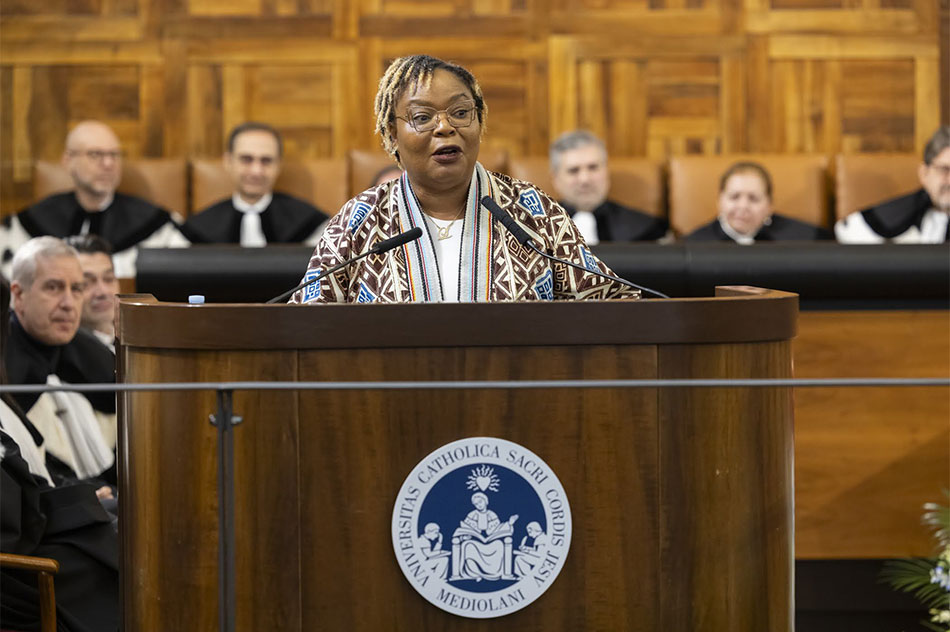
The ceremony continued with keynote addresses by Nobel Laureate Gbowee and Professor Aryeetey, both united by the transformative power of education.
It is no coincidence that Leymah Gbowee, who through her women's movement played a decisive role in ending the second civil war in Liberia and facilitating peace-building, recounted that, following the award, she dedicated herself to creating a foundation to enable girls to study. This is precisely what the Gbowee Peace Foundation Africa (GPFA), based in Monrovia, Liberia, continues to do, offering educational development and leadership opportunities for women and youth.
“I am convinced that education is a life insurance, and that education is a 360-degree investment. Because one does not study merely to enrich oneself but to transform oneself and the world, to give dignity to people, to understand that, regardless of skin colour, we are all human beings and must respect each other.” For this reason, the Nobel Peace Laureate believes that “the essence of peace is not the absence of war, but the creation of conditions that give dignity to all. If everyone in a country can say they live ‘in dignity’, then there is peace in that country. The value of education lies in recognising the humanity of the other. In this perspective, the exchange between Università Cattolica and Africa is important for intellectual dialogue, research, and the recognition of mutual gifts and talents.”
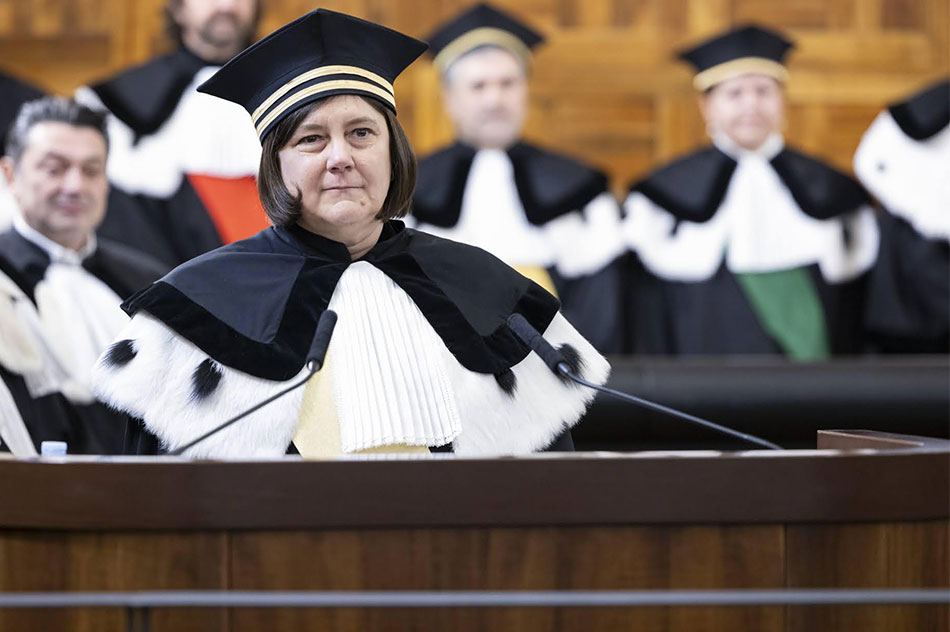
Investment in the young African generations was also discussed by the Chair of the Board of the African Economic Research Consortium, formerly the Secretary-General of the African Research Universities Alliance, Ernest Aryeetey, who noted that “the economic structures of many sub-Saharan African countries have not transformed sufficiently to create an adequate number of jobs to meet the growing demand of the youth population. Furthermore, many initiatives overlook the development of essential transversal skills. Often, also cultural barriers limit women's participation in the labour market. The necessity for transformative long-term approaches to address these structural challenges is becoming increasingly urgent. To effectively tackle the youth unemployment crisis in Africa, a common effort is needed that directly addresses the main structural challenges facing the continent.”
The Africa Plan of Università Cattolica is precisely aimed at addressing this issue focusing on the educational challenge, as the Rector reaffirmed in closing her speech: “Also thanks to the opportunities offered by digitalisation, education will be able to represent the real driving force for developing serious paths towards peace, reducing inequalities between different regions of the planet, and training women and men oriented towards the common good. This is the strength of the power of education.”